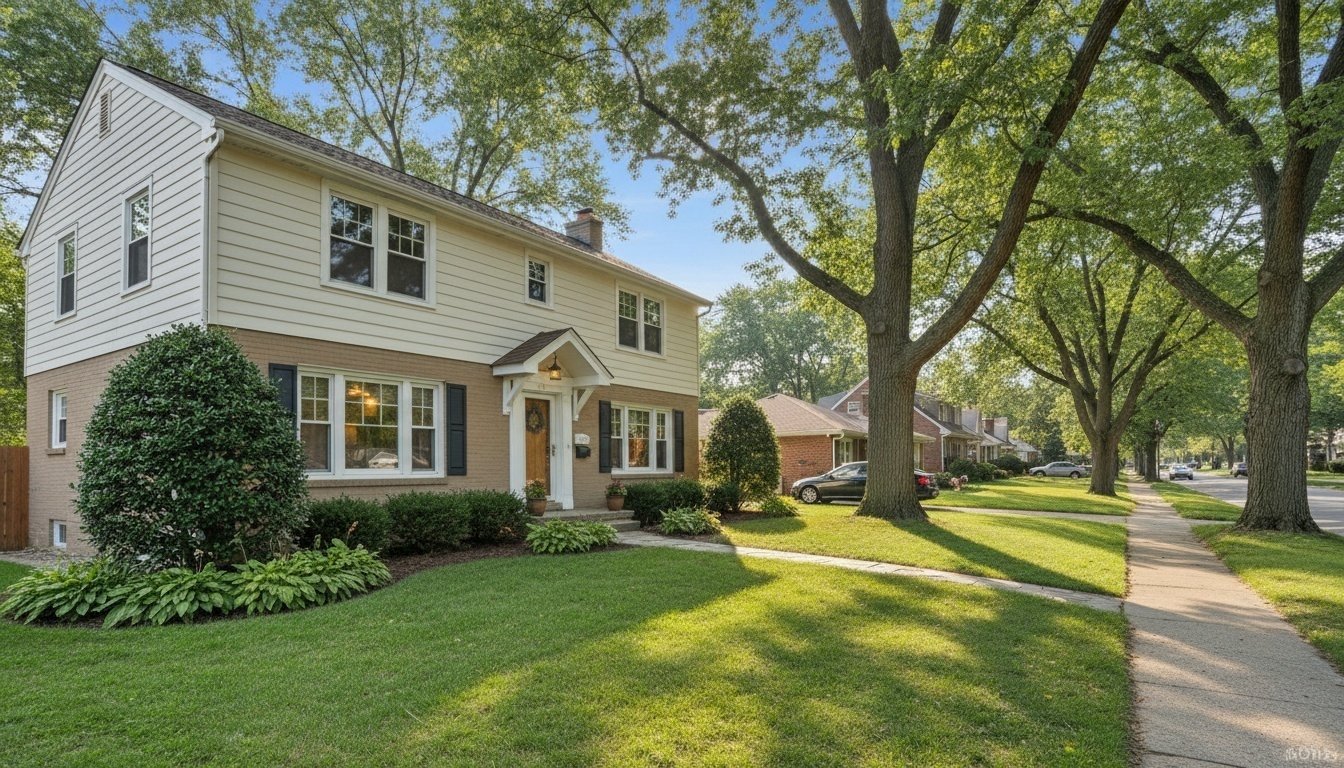There are many costs associated with selling a home. You might already know about some of these expenses, such as paying for a few upgrades like new paint and flooring and hiring a packing company to help box up your possessions for your move.
But there's another potentially unexpected cost that can pop up at tax time. This expense is connected to the capital gains from the sale of your home. In many cases, the profit you earn on that sale could be subject to capital gains taxes of up to 20%.
But don't despair. Thanks to Internal Revenue Code Section 121, also known as “Exclusion of Gain from Sale of Principal Residence,” you might not have to pay taxes on the capital gains generated from the sale of your home. Knowing about capital gains, taxes, and this IRC code can help you determine how much--or if--you owe taxes when the month of April rolls around.
Overview of Capital Gains/Capital Gains Taxes
Before we dive into the Section 121 Exclusion, let’s go over capital gains, including what they are and how they are taxed. Capital gains represent the profit earned from the sale of capital assets.
According to the IRS, capital assets are property or other things that can appreciate in value while you own them. These items include (but aren't limited to):
- Homes or other real estate property
- Stocks and bonds
- Household furniture
- Coin collections
- Boats
- Stocks, bonds, funds and other investments
Moving on, you bought your home, boat, or furniture at a certain price. When you sell that item, the difference between how much you earned from the sale and how much you originally paid for the asset is the capital gain. For example, if you buy $500 worth of stocks and sell them at a later date for $700, your capital gains would be $200.
When tax season comes around, the IRS might tax you on capital gains from the sale of your assets. How much you owe depends on:
- The profit you generated from asset sales (minus associated costs)
- Your taxable income (as capital gains taxes are calculated based on income bracket)
Capital gains can be straightforward, but along with the original purchase price is something called "basis." Basis can include improvements you made to your home to help it increase in value or reinvested stock dividends. That basis is subtracked from the capital gains generated when you sell the asset.
Defining the Section 121 Exclusion
Now that we’ve gone over capital gains and how they are often taxed, it’s time to get into the weeds of the Section 121 Exclusion and how it applies to real estate. In a nutshell, this IRS rule allows you to exclude capital gains of up to $250,000 ($500,000 if you're married and filing taxes jointly) from the sale of your primary residence.
Any capital gain that goes above the $250,000/$500,000 amount will be subject to taxes. Let's say that you and your spouse bought a house as your primary residence. After living in it for a while, you then sold this house, generating a $700,000 profit. The first $500,000 of that profit will be tax-free. You will, however, owe capital gains taxes on the remaining $200.000.
The main benefit of the Section 121 Exclusion is that you avoid paying a certain amount of capital gains tax on the profit from the sale of your home. This means you can keep more money in your pocket. As the current maximum capital gains tax rate is 20%, you could avoid paying a pretty penny in taxes if you earned a hefty profit on the sale of your primary residence.
Qualifying for the Section 121 Exclusion
As noted above, to qualify for the Section 121 Exclusion, the home that you sold must have been your primary residence. Selling a vacation home, second home, or investment property doesn't qualify for the Section 121 Exclusion.
In addition, the IRS notes, you will be eligible for the Section 121 Exclusion as long as the property passes the ownership test and use test. Specifically:
- Ownership test: You must have owned your primary residence for at least two years during the five years before selling your home
- Use test: You must have used that property as your primary residence for at least two years during the five years before selling your home
Can Renting Disqualify the Exclusion?
Let’s say you live in a college town, and you have typically rented out a room or two of your primary residence to local students. You might understandably be wondering if your boarders will cause you to miss out on qualifying for the Section 121 Exclusion.
Fortunately, as long as you are renting out rooms in your primary home, like a guest room or two or a finished basement, you should still be able to qualify for the Section 121 deduction. Again, you will still have to pass the ownership test and use test, but renting out spaces within your home to local college kids shouldn’t have an impact on qualifying.
However, things can get a little tricky if you rent out the following on your property:
- Casita or detached guest house
- An accessory dwelling unit (ADU)
- Another unit in a duplex that you occupy
In these cases, the IRS will consider these rented spaces to be separate from your main dwelling. You can exclude the capital gain from the part of the property where you lived, but the separate rented area will not qualify for the Section 121 deduction.
Also, there are scenarios in which you bought a property for investment as a rental and decide to convert it into a primary residence. However, such a move is complex and requires assistance from your tax professional to ensure that you comply with IRS mandates.
Additional Considerations
At first blush, the Section 121 deduction may seem pretty straightforward. But, as is sometimes the case when it comes to tax rules and the IRS, there are definitely some “What ifs” and “Buts” to keep in mind. For instance:
What if I’m in the military?
According to the IRS, if you or your spouse are on “qualified official extended duty in the Uniformed Services, the Foreign Service or the intelligence community,” you might elect to extend the five-year test period for as long as 10 years.
“Qualified official extended duty” applies if for more than 90 days you are:
- Residing at least 50 miles away from your primary residence at a duty station
- Living in government housing, due to government orders.
Publication 523 on the IRS website offers more information about this extension and how to comply with it.
What if I’m recently married?
If you are married and filing your taxes jointly, it is okay if only one of you qualifies for the Section 121 Exclusion. Let’s say you purchased your home seven years ago and got married last year. At the same time, you and your spouse only lived in the home for just over a year until you sold it. You would still qualify for $250,000 under the Section 121 Exclusion.
We had to move!
Depending on the circumstances of the sale of your home, you could qualify for a partial capital gains exclusion. This could come into play if you had to sell your primary residence due to:
- A job transfer to a new city
- Health issues including long-term illnesses or disabilities
- A move to care for an elderly parent in another state
Even if you don’t pass the ownership test and use test in the above scenarios, the IRS may allow you to qualify for a partial exclusion, and prevent at least some of your capital gains from being taxed. How much of the profit that you could shield from taxation would be determined by the amount of time you owned and lived in your primary home before selling it.
If any of the above scenarios apply to you, it’s important to speak with your tax professional to explain your circumstances, offer specifics and get personalized advice about your tax situation.
Section 121 and (Potentially) Fewer Taxes
Selling a home definitely involves some expenses. However, thanks to the Section 121 Exclusion, paying capital gains taxes may not be one of those costs. As long as you meet the qualifications, and the profits generated from the sale of your home fall within a certain amount, you could avoid having to pay taxes on the capital gains.
One way to determine a price for selling your home is to research sales comps on the PropertyReach platform. The MLS Data and Sales Comps section provides you with listing details and accurate prices on similar properties in your neighborhood. Furthermore, the platform can help you connect with buyers who might be looking for a home just like yours.
For additional information, and to begin your seven-day free trial, visit the website at propertyreach.com.


